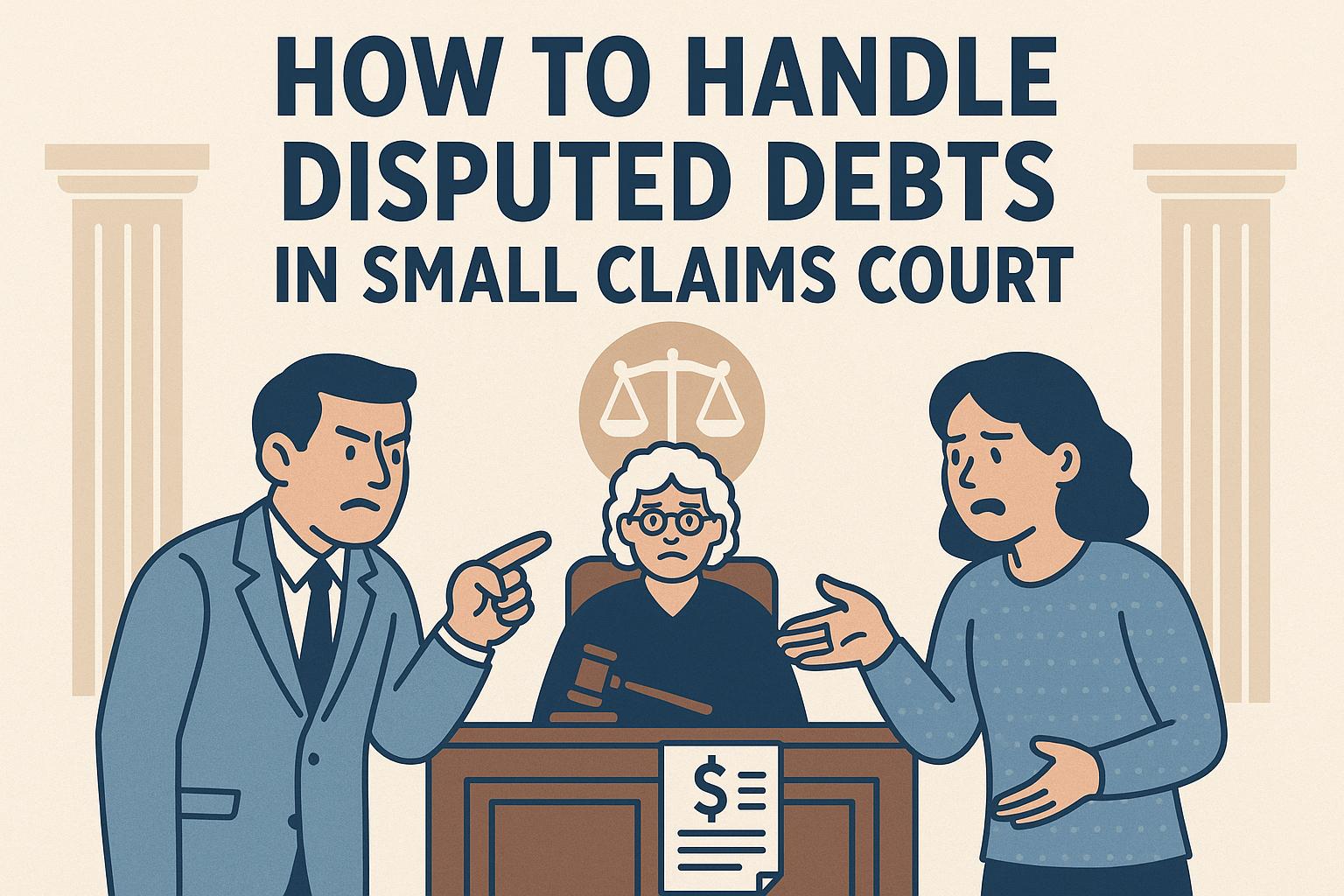
How to handle disputed debts in small claims court.
Understanding Small Claims Court
Small claims court is a legal venue established specifically for resolving disputes that involve relatively minor financial amounts, making it a practical option for individuals and businesses alike. Known for its expedience and less formal atmosphere compared to other court types, small claims court provides a streamlined process for those seeking resolution regarding financial disagreements. The maximum amount one can claim in small claims court varies by jurisdiction, necessitating a check into the specific regulations applicable in one’s area before proceeding.
When to Consider Small Claims Court
You may find yourself contemplating small claims court when faced with a financial dispute, particularly if informal negotiations have proved ineffective. It serves as an instrumental avenue to pursue when the amount in question falls within the legal limits designated for small claims. Common scenarios include disputes over unpaid debts, incomplete services, and property damage involving costs that are minor enough to fall under the small claims category.
Preparing for Court
Preparation is a cornerstone of achieving a favorable outcome in small claims court. Meticulous organization of all pertinent documentation is essential, covering items like contracts, receipts, and any written communications exchanged between the disputing parties. These documents should be curated in a systematic manner that highlights crucial facts supporting your argument, enabling a smooth and effective presentation of your case.
Filing a Claim
The initiation of a small claims case generally involves completing and submitting a complaint form, obtainable from your local courthouse or downloadable from many court websites. After filling out the required sections, you’ll need to submit this form back to the court and pay a designated filing fee. For guidance in navigating this procedural beginning, seeking advice from legal aid services may prove beneficial. Many courts also offer instructional materials or video tutorials on their websites to aid claimants with the filing process.
Serving the Defendant
Once the claim is filed, it’s critical to ensure the defendant is properly served with the lawsuit. This step, known as the service of process, is designed to inform the defendant about the legal action and the pending court date. Rules regarding the service process can differ by jurisdiction, often permitting service through certified mail, though always verify the specifics with your local court’s requirements.
In the Courtroom
Appearance in court requires due diligence in both presentation and articulation. Arriving early on the hearing day aids in acclimating oneself with the courtroom environment, potentially soothing any anxiety. Dressing professionally is advised as it reflects the respect you hold for the court process. During the hearing, concisely present your case, sticking to factual information to convey your point effectively to the judge. The defendant will also be granted an opportunity to present their argument. Some regions permit non-attorney representation such as paralegals, especially as the informal nature of small claims court typically precludes lawyers.
Judgment
Having heard both parties, the judge will deliver a ruling based on the merits of the case presented. If the judgment is in your favor, the court might offer guidance on collecting the owed amount; however, enforcement primarily falls on your shoulders. Enforcement methods may vary, with common options including wage garnishment and property liens, contingent on jurisdiction-specific laws.
Appealing a Decision
While small claims court decisions are generally conclusive, avenues for appeal exist in certain jurisdictions if a legal error is perceived to have influenced the outcome. To pursue an appeal, reviewing local statutes is prudent to understand any rights or limitations related to the appeal process.
Additional Resources
For individuals seeking more comprehensive detail about small claims court procedures, local government court resources serve as valuable tools. Exploring your local courthouse’s website can lead to a wealth of information, with links to resources specifically focusing on small claims court proceedings. Taking the time to educate oneself thoroughly about jurisdiction-specific rules and protocols will enhance one’s understanding and position in navigational court proceedings.
- Posted by
 admin
admin - Posted in Uncategorized
 Oct, 25, 2025
Oct, 25, 2025 Comments Off on How to handle disputed debts in small claims court.
Comments Off on How to handle disputed debts in small claims court.
